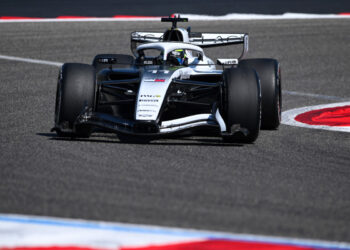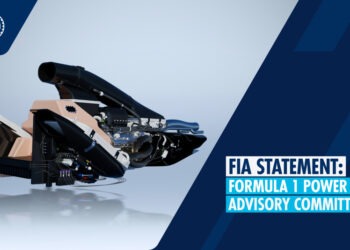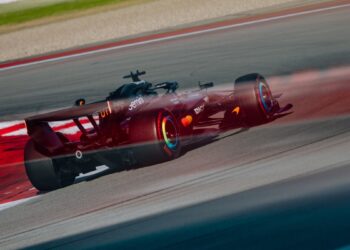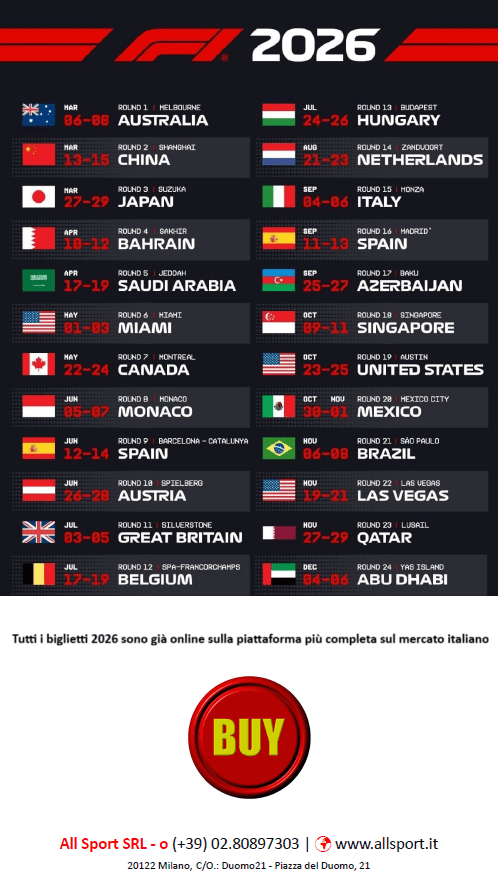La notizia è passata un po’ sotto silenzio, ma nell’ultimo World Motor Sport Council di Doha l’ex Team Principal della Scuderia Stefano Domenicali è stato nominato Presidente della FIA Single-Seater Commission (che si occupa appunto di gare riservate alle monoposto), in sostituzione, dopo quattro anni di incarico, di Gerhard Berger. In questa intervista pubblicata oggi sul sito della Federazione Internazionale, Domenicali parla del ruolo che lo attende e del futuro delle competizioni.
Barbara Premoli
At last year’s World Motor Sport Council in Doha, one notable order of business was the announcement that from this year former Ferrari Team Principal Stefano Domenicali would take the reins of the FIA’s Single-Seater Commission from outgoing President Gerhard Berger. In the four years of Berger’s presidency the Federation on am ambitious plan to remodel the route to the top level of racing, creating a clear and simple pathway that would take young racers from karting all the way to Formula One.
The first fruits of that task have been delivered, through the creation of a reinvigorated Formula 3 European Championship and the establishment of the first national F4 championship, the first step beyond karting, in Italy. It is into this evolving landscape that Domenicali, who is combining his commission presidency with a role at automotive giants Audi, arrives, and he’s excited about the challenge.
“You do these things because you love motor sport and motor sport has been part of my life since I was a child,” he says. “My job is to make sure that my experience and vision of motor sport can influence the work of the commission in order to present to the World Motor Sport Council – and to the world of motor sport – ideas to make sure single-seater racing has a well-structured platform that can enable not only drivers but also young engineers and teams to develop a career and their business. I am enthusiastic about the task and also about the people working with me in the commission – they are very passionate guys, young professionals with a lot of motivation.”
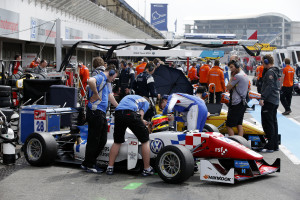 F3 has, he says, “been a great success,” and the he is convinced the championship established by Berger is on a firm footing. “We have a very good basis with a good organiser and promoters that place the championship alongside regular large-scale events. F3’s place in that is well balanced with the other events and the visibility is good. The platform is solid and [as of February 2015] we’re working on the renewal of this agreement.”
F3 has, he says, “been a great success,” and the he is convinced the championship established by Berger is on a firm footing. “We have a very good basis with a good organiser and promoters that place the championship alongside regular large-scale events. F3’s place in that is well balanced with the other events and the visibility is good. The platform is solid and [as of February 2015] we’re working on the renewal of this agreement.”
F4, meanwhile, is at an early stage. Last year’s Italian championship was the first of a planned series of championships, run at national level by a country’s ASN, and Domeniali is keen to see how the category develops in 2015 as more series are rolled out.
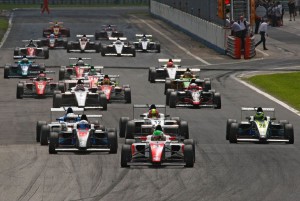 “This year, we will have at least seven championships, in seven nations,” he says, highlighting new championships in the UK, Japan, Australia, Germany, Spain, China and a series in the FIA’s northern European zone. “It’s a very solid base with a good car. What is fundamental is that over the next three years we make sure that each of these championships, and the ones that follow, are good, well managed, that costs are kept under control, and if we are able to do that, that will be a fantastic starting point.”
“This year, we will have at least seven championships, in seven nations,” he says, highlighting new championships in the UK, Japan, Australia, Germany, Spain, China and a series in the FIA’s northern European zone. “It’s a very solid base with a good car. What is fundamental is that over the next three years we make sure that each of these championships, and the ones that follow, are good, well managed, that costs are kept under control, and if we are able to do that, that will be a fantastic starting point.”
He is also targeting the US a territory where he feels F4 might flourish. “I spoke with [US national motor sport authority] ACCUS to organise a meeting with the company that is working on the basic formula. We need to involve an engine manufacturer and a chassis manufacturer, and that’s really the starting point. That meeting is set to happen soon.”
He is also certain that the role of ASNs and the FIA in these first rungs on the ladder go beyond simple regulation. “I believe that from a federation point of view what we want to do is make sure we create the right steps so that from an experience point of view, drivers arrive in F1 well prepared,” he says. “We need to make sure that race stewards can be cons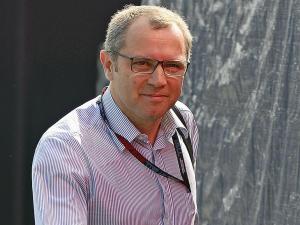 idered not only as regulators but as educators, helping drivers to grow.”
idered not only as regulators but as educators, helping drivers to grow.”
Logically, the final step on the ladder is Formula 2 – the creation of which was approved at the most recent meeting of the World Motor Sport Council in March. It is a huge project and one Domenicali says must involve as many of the sports existing stakeholders as possible.
“We need to make sure that everyone who is interested in these new projects has the freedom to come and discuss them with us,” he says. “There is no agenda for us beyond building what we believe to be the best, most competitive, affordable series possible to allow drivers to make the final step and to create a clearly understandable path.”
The track ahead is clearly complex but Domenicali remains excited by the task. “We know that the context is not easy but this is what we stand for. So when the FIA President, Jean Todt, asked me I said OK, thank you very much, let’s go. Now I’m starting to work towards presenting something that can be good for the benefit of motor sport.”

